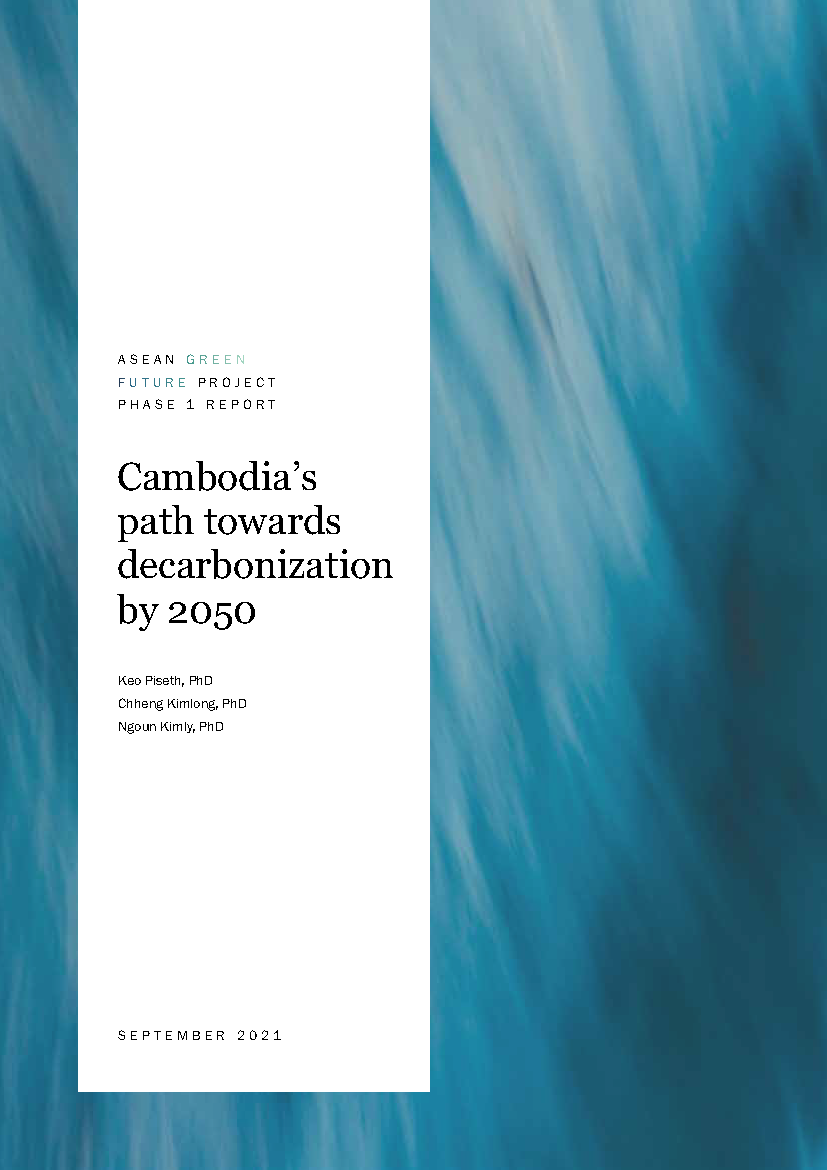Cambodia’s path towards decarbonization by 2050
This report has been developed through a synthesis of existing research and knowledge in Cambodia to
build the economic and technical case for decarbonization. Seven country teams, including Cambodia, have
been established across the Association of Southeast Asian Nations (ASEAN) to lead similar work. This report
investigates the feasibility of net zero by 2050 and the potential for more ambitious country commitments at
Conference of the Parties (COP) 26.
The following findings demonstrate the key progress on climate action achieved in Cambodia and provide a solid
baseline for strengthened engagement:
• Cambodia has actively participated in international negotiations based on the principle of Common but
Differentiated Responsibilities and Respective Capabilities (CBDR–RC).
• Cambodia has built institutions for climate change responses, and mainstreamed climate change mitigation
into national policy, public investment, and sectoral and sub-national development plans.
• In the Nationally Determined Contribution, Cambodia commits to reduce greenhouse gas (GHG) emissions
almost 42 percent compared to the business-as-usual scenario by 2030.
• FOLU is the largest emitter of GHGs in Cambodia. Forest and Other Land-Use Changes (FOLU), especially
forest carbon sinks, play essential roles for GHG emissions reduction in Cambodia for both 2030 and 2050
emissions reductions goals.